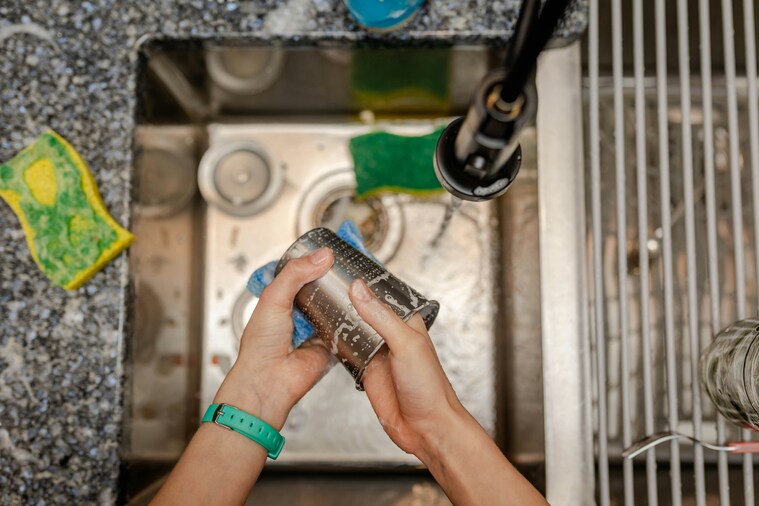Equality in domestic work, key to couple satisfaction
According to a study by the UAB Centre for Demographic Studies and Stockholm University published in the journal Perspectives Demogràfiques, equality at home is a key factor for couple satisfaction (although the perception varies according to gender, country and age). The study finds that, independently of gender, in Sweden there is a greater perception of equality than in Spain.

According to the study published by the UAB's CED, there is a higher perception of eqaulity in domestic work in Sweden than in Spain.
Despite advances made in gender equality in public spheres, domestic work continues to be unevenly distributed within the household. With the goal of exploring how men and women percieve the distribution of domestic work and the degree of satisfaction demonstrated, the journal Perspectives Demogràfiques publishes the study “A Key to Couple Satisfaction: A Comparison of Equality in Domestic Work in Spain and Sweden”.
The study is the result of a collaboration between researchers from the Centre for Demographic Studies (CED-CERCA) of the Universitat Autònoma de Barcelona (Mireia Almirall, Pau Miret and Joan García Román) and from Stockholm University (Livia Sz. Oláh). Two representative surveys were compared in the study: the Fertility Survey 2018 (Spain) and the Gender and Generations Survey 2021 (Sweden).
The study was based on two research questions, aimed at heterosexual couples: "How do men and women perceive the division of household chores differently in each country?" and "How does the level of satisfaction vary depending on the type of division and the country of reference?". The differences by gender, age and country were analysed, as well as the interaction between the type of perceived division and the declared satisfaction.
Equality in the home is confirmed as a key factor in wellbeing in couples. The data shows that at any age, Swedish couples declare more equality than Spanish couples and that men declare more equality than women.
Those who perceive a greater equal division are Swedish men (65%), while those who perceive a greater imbalance are women in Spain (only 23% declare equality). Swedish women are also less optimistic than their partners: only 57% perceive balance. In Spain, 29% of men consider that tasks are divided equally.
Women are more critical of domestic balance and report lower levels of satisfaction when there is an imbalance (Spanish women report 6.4 out of 10). In contrast, men tend to be more satisfied, even in situations of unequal distribution, particularly in Spain (8.5 among Spaniards).
Therefore, the main conclusion is that on the one hand, in Sweden there is a greater perception of equality than in Spain, regardless of gender. On the other hand, an equal distribution of household chores is associated with greater satisfaction, for both women and men and in both countries analysed.
In terms of age, young couples perceive more equality, but it is not clear whether this is due to changes throughout the life cycle (the feeling of equality is lost throughout life) or to generational differences (current cohorts perceive more equality than older ones). The younger the couple, the more it is perceived that tasks are shared more equally. In Sweden it increases with age for everyone, while in Spain it improves among men but worsens among women.
Influence of social environment and institutions
According to Mireia Almirall Llambrich, researcher at the UAB CED and one of the authors of the study, “social norms define what is expected of women and men, and expectations mean that household tasks are generally associated with the female role and that people adapt to this even when they consider it unfair”. For this reason, she considers that inequality “does not only depend on individual preferences, but also on the social environment and the institutions that shape them”.
The study concludes that the fact that women are more critical and less satisfied with the imbalance in the home "reflects not only unequal expectations but also the persistence of a patriarchal system that renders their work invisible and legitimises men’s 'auxiliary' contribution in the home".
ARTICLE: “Igualtat al treball domèstic, clau per a la satisfacció de la parella: una comparativa entre Espanya i Suècia”. Perspectives Demogràfiques, October 2025, Centre d’Estudis Demogràfics, Universitat Autònoma de Barcelona.